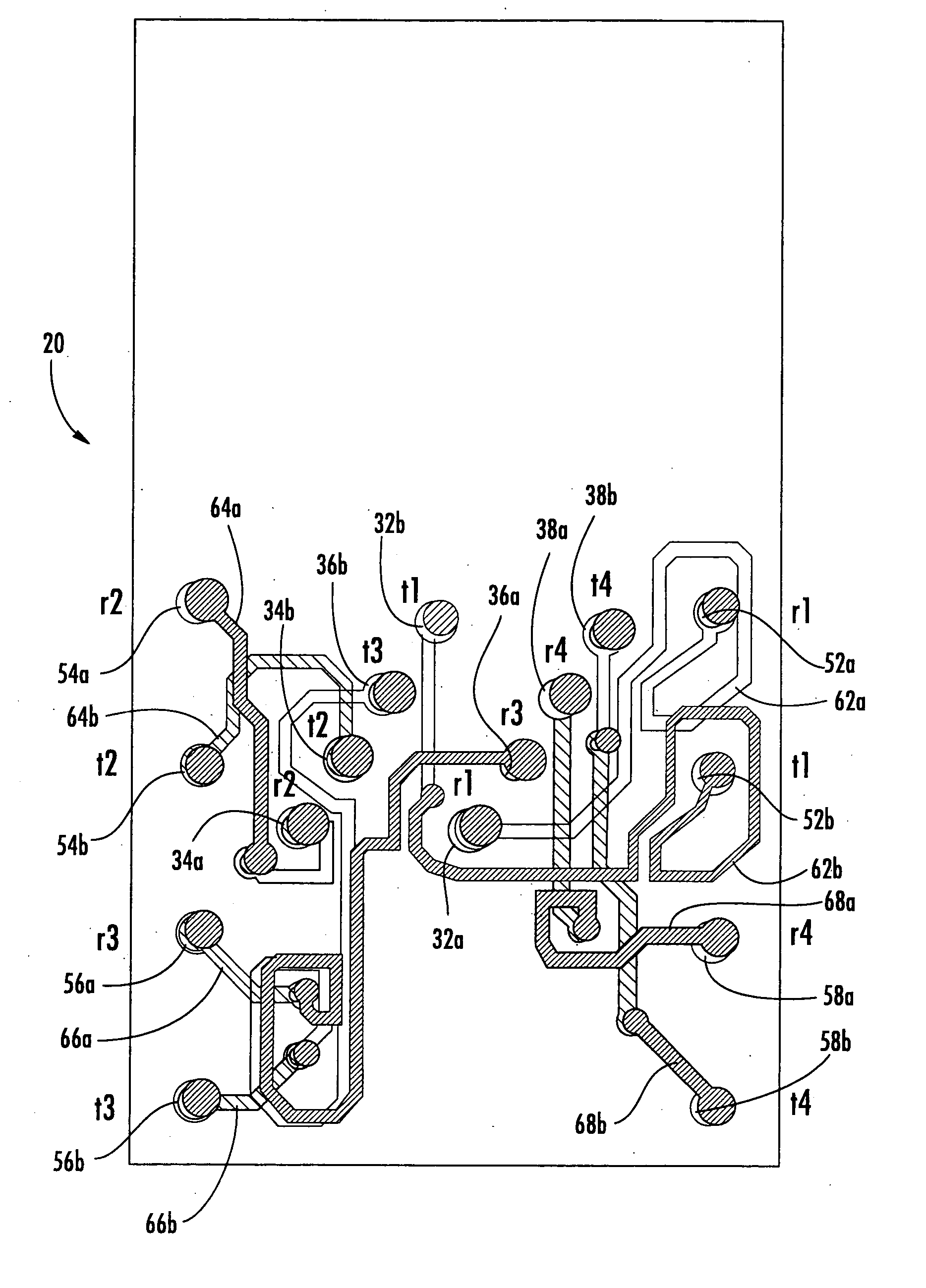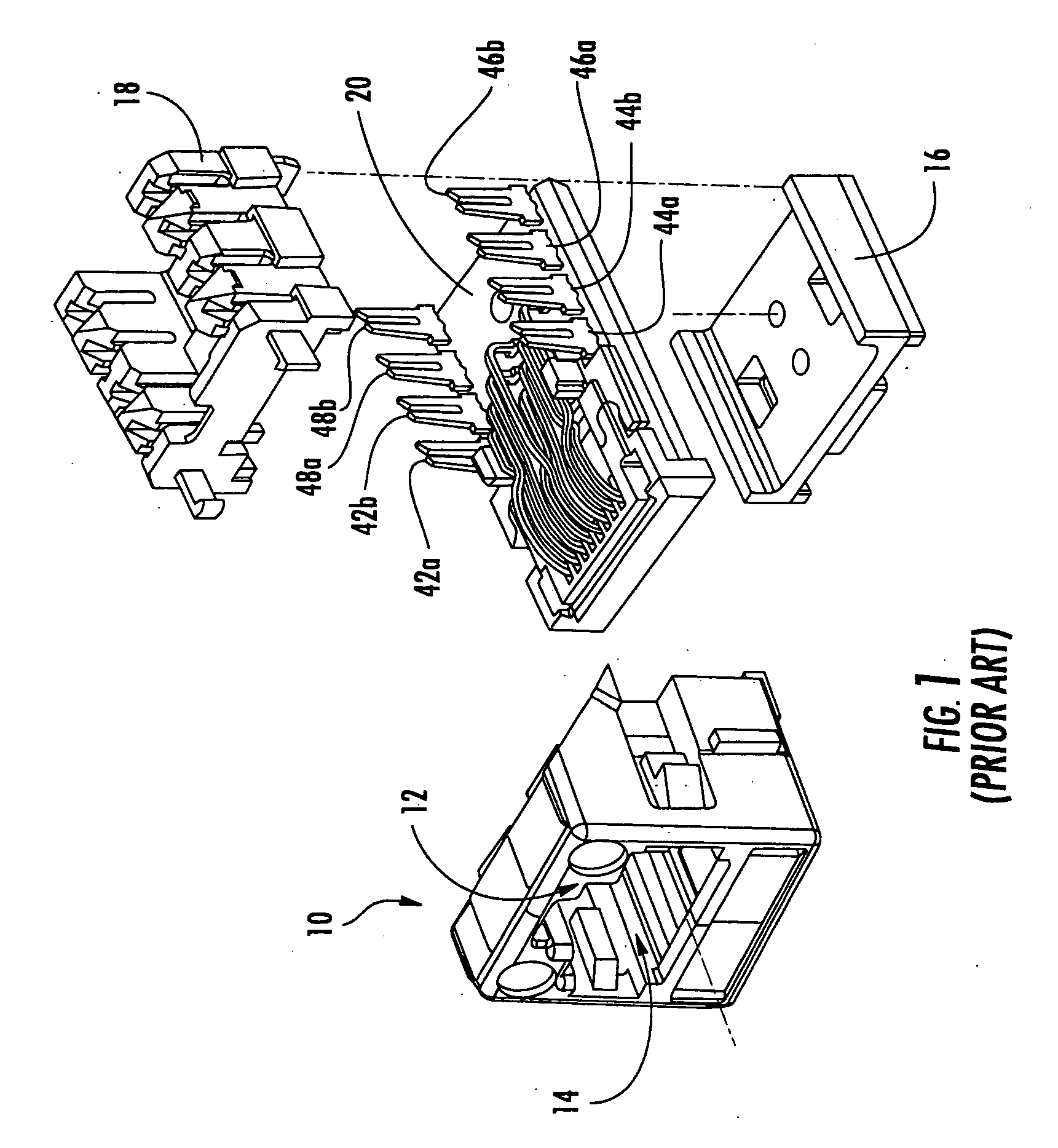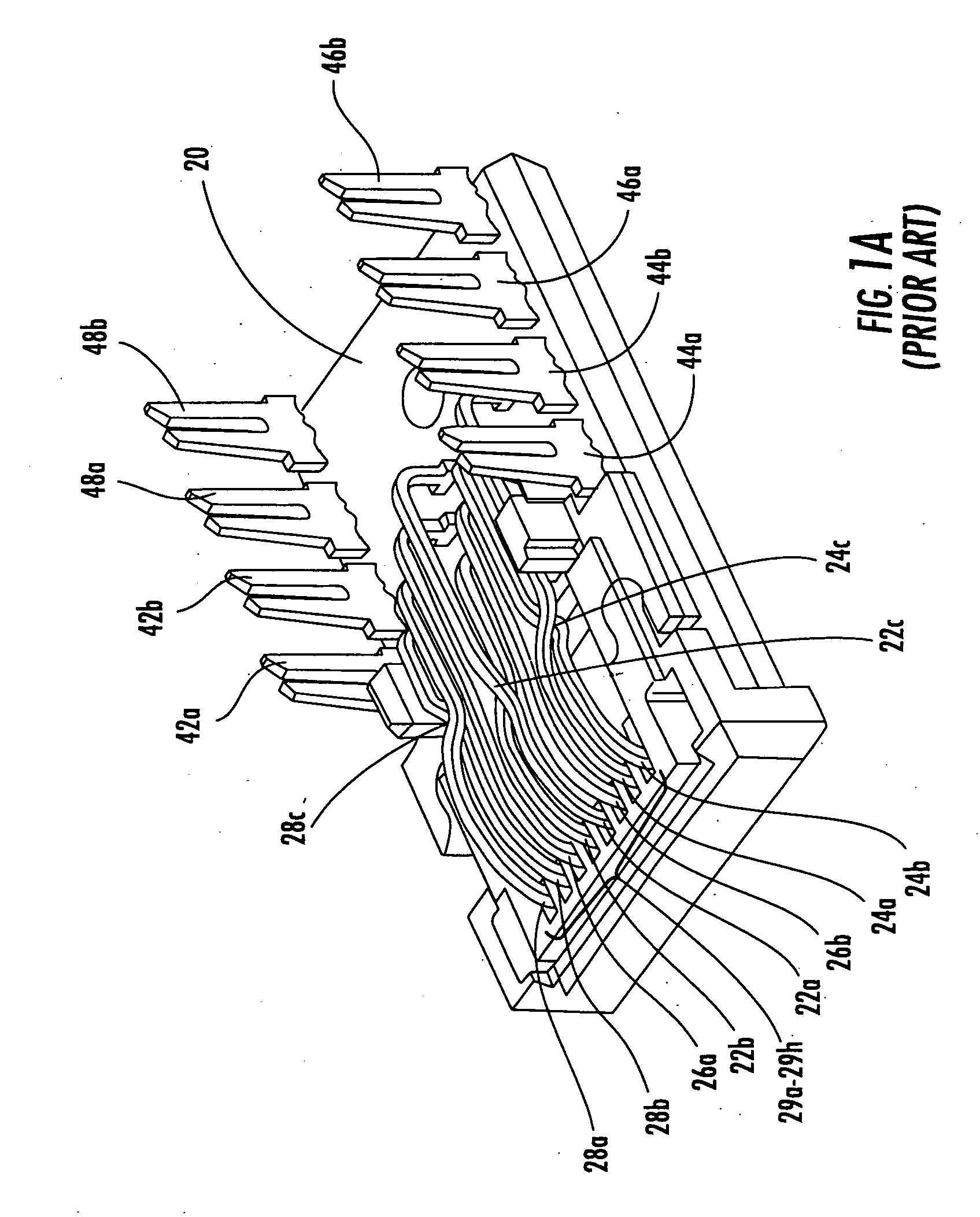Communications jack with compensation for differential to differential and differential to common mode crosstalk
a technology of differential to differential and crosstalk, applied in the field of communication connectors, can solve the problems of increasing the cost of the system, undesirable signals, and the susceptibleness of each wire in the wire-pair to pick up electrical noise, so as to improve the differential to common mode and the effect of differential to differential
- Summary
- Abstract
- Description
- Claims
- Application Information
AI Technical Summary
Benefits of technology
Problems solved by technology
Method used
Image
Examples
example
[0045] Communication jacks of the configuration illustrated in FIG. 1, mated with conventional plugs, were modeled and solved using finite element electromagnetic field simulation software. In one jack model designated “experimental jack”, the contact wire crossover configuration substantially matched the embodiment of the current invention illustrated in FIGS. 5-7A. In a second jack model, designated “prior art jack”, the contact wire crossover configuration substantially matched the prior art jack illustrated in FIGS. 1-3. The jack models were then solved for differential to common mode NEXT and FEXT crosstalk.
[0046] Differential to Common Mode Results for the problematic 3-2 and 3-4 pair combinations, where pair 3 is the differentially excited pair, are shown in FIGS. 8A-8D and FIGS. 9A-9D. For each of these pair combinations results are provided for forward NEXT, forward FEXT, reverse FEXT and reverse NEXT, wherein the term “forward” represents the testing orientation in which ...
PUM
 Login to View More
Login to View More Abstract
Description
Claims
Application Information
 Login to View More
Login to View More - R&D
- Intellectual Property
- Life Sciences
- Materials
- Tech Scout
- Unparalleled Data Quality
- Higher Quality Content
- 60% Fewer Hallucinations
Browse by: Latest US Patents, China's latest patents, Technical Efficacy Thesaurus, Application Domain, Technology Topic, Popular Technical Reports.
© 2025 PatSnap. All rights reserved.Legal|Privacy policy|Modern Slavery Act Transparency Statement|Sitemap|About US| Contact US: help@patsnap.com



